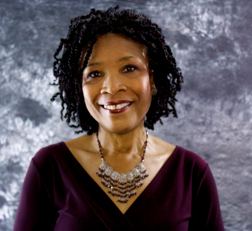About the Webinar:
Many members of diverse communities have in the past and continue to experience disenfranchisement, marginalization, and in some instances discrimination in the nation’s education, health, and human services systems. Such experiences contribute to distrust and cause barriers to services that are needed within these communities. Programs and professionals in the field of Special Education and Early Intervention Dispute Resolution often struggle with effective ways to engage the racially, ethnically, culturally, and linguistically diverse communities in their states. Beliefs and practices about the meaning of conflict and how to resolve it are culturally influenced ⎯ not only from the perspectives of youth, families and communities, but also from state and local agencies. Cultural brokering has been defined as “… bridging, linking, or mediating between groups or persons of different cultural backgrounds to effect change.” The literature documents cultural brokering as a practice to enhance the capacity of organizations to serve persons with intellectual, developmental, and other disabilities. This webinar is designed to highlight the role of cultural brokering to engage diverse communities and stakeholders in a meaningful manner in special education and early intervention dispute resolution.
Objectives
Participants will:
- Define the concept of cultural brokering.
- List the attributes, knowledge, and skills of a cultural broker.
- Cite guiding principles of cultural brokering.
- List six key strategies for engaging diverse communities.
- Apply the concept, principles, and practices of cultural brokering to dispute resolution in special education and early intervention including their relationship to cultural and linguistic competence.

About the Presenter: Tawara Goode is an associate professor in the Department of Pediatrics, Georgetown University Medical Center in Washington, D.C. She has been on the faculty of the Georgetown University Center for Child and Human Development (GUCCHD), for over 30 years and has served in many capacities. She has degrees in early childhood education and education and human development. Professor Goode has extensive experience as a principal investigator for federal and private sector grants and contracts. A primary area of focus for Professor Goode is national level efforts to advance and sustain cultural and linguistic competence within an array of settings including but not limited to institutions of higher education, health, mental health, and other human service systems. Professor Goode is the director of the National Center for Cultural Competence (NCCC) at GUCCHD. The NCCC has been in existence for the past 27 years during which Professor Goode was the director for 26 years. The mission of the NCCC is to increase the capacity of health care and mental health care programs to design, implement, and evaluate culturally and linguistically competent service delivery systems to address growing diversity, persistent disparities, and to promote health and mental health equity. Professor Goode is acknowledged as a thought leader in the area of cultural and linguistic competence and for building the NCCC into a nationally and internationally recognized and award-winning program. She had a primary role in developing curricula, assessment instruments, professional development series, and other resources that support cultural and linguistic competence. Professor Goode is an invited scholar, lecturer, and visiting faculty: a) nationally to schools of medicine, public health, education, research institutes, professional associations, and state and national government; and b) internationally in Australia, South America, and the United Kingdom.
